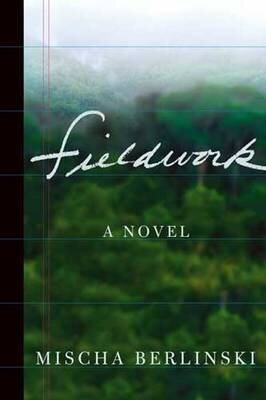Fieldwork by Mischa Berlinski (Farrar, Straus & Giroux)
When his girlfriend gets a teaching job in the north of Thailand, author and fictional protagonist of Fieldwork, Mischa Berlinski, decides to tag along and make his living by writing freelance articles for various English language publications. Mischa was in Bangkok working on a story for a Singaporean arts magazine about an up-and-coming Thai sculptor. He meets his friend Josh O’Connor, who has been living in Thailand for the past ten years.
Josh’s stories are so incredibly intriguing that Mischa always calls him when he is in Bangkok. Tonight would be no exception. They meet for food and drinks at an outdoor food booth that specializes in fish. During the meal, Josh tells Mischa he needs someone “who really knows the up-country” and begins to tell a typical Josh story.
“A Josh O’Connor story is like a giant cruise ship leaving the port, and when you make a dinner date with Josh O’Connor, you know in advance that you are going to set sail”. Josh goes into his story about receiving a call from Wim, a functionary at the Dutch embassy who tells him about a woman who called and wants someone to inform her wayward niece that her uncle has died and has left her a small inheritance. The only thing is, the woman’s niece is in prison for murder.
Josh meets Martiya in prison but is met with an unexpected vehemence. Martiya believes Josh is just another missionary that wants her to accept the Lord Jesus. Once the misunderstanding is resolved, Josh informs her of her inheritance and asks if there is anything else he can do. Martiya is not interested in the money or bribing her way out of prison. The only things she asks for are pencils and papers so she can complete a paper she’s writing about life in a Thai prison. A simple request Josh grants her. The inheritance is to be given to charity to help and support the hill tribes of Thailand.
A year after talking with Martiya, Josh unexpectedly receives a package from the prison. Enclosed were two sets of manuscripts that Martiya wrote in prison with a request that they be properly typed and to submit them for publication. Josh calls the prison to talk to Martiya in person, only to be informed that she is dead. “She ate a ball of opium and killed herself”. Josh says it could be a great story, for someone who lives up North as he doesn’t have the time to pursue the story any further. What else could Mischa do but take up the story from there.
Berlinski weaves an interesting story that was inspired as he was writing a historical account of the conversion of the Lisu people of northern Thailand to Christianity. The Dyalo do not exist in real life but come to life in Fieldwork. Berlinski had interviewed a number of missionaries in Thailand which adds to the realism of Martiya’s encounters with them. The fictional Mischa takes up the story and does his research to find out more about Martiya van der Leun and how she ends up in prison. Who did she kill? Why did she kill the person? Why did she kill herself? The deeper Mischa delves into the story, the mystery slowly comes to light.
If you weren’t interested in anthropology before reading Fieldwork, you may find yourself digging through other nonfiction titles related to the hundreds of tribes and people that you never knew existed! ~Ernie Hoyt
